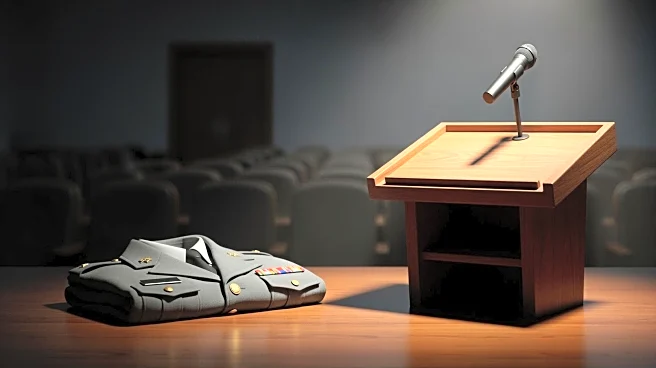What's Happening?
The Pentagon is considering recalling U.S. Senator Mark Kelly to active military duty following his appearance in a video that encouraged troops to defy illegal orders. Kelly, a Democratic senator from
Arizona, has a distinguished military background as a senior Navy officer and pilot, having flown combat missions during the first Gulf War. He later became a NASA astronaut, participating in four space shuttle missions. Kelly's political career gained national attention after his wife, former U.S. Representative Gabrielle Giffords, survived a shooting incident. The couple founded a gun-control advocacy group, and Kelly has since focused on national security and military issues in the Senate. He was instrumental in crafting the CHIPS and Science Act to boost U.S. semiconductor manufacturing.
Why It's Important?
The Pentagon's actions against Senator Kelly could have significant implications for the relationship between military leadership and elected officials. Kelly's call for troops to defy illegal orders touches on the broader issue of military obedience and the potential for political influence over military operations. This situation may impact Kelly's political standing and influence within the Senate, particularly regarding national security and military policy. Additionally, the incident highlights the ongoing debate about the role of military personnel in political discourse and the boundaries of lawful orders. The outcome of this situation could set a precedent for how similar cases are handled in the future.
What's Next?
The Pentagon's decision on whether to recall Kelly to active duty remains pending, and the situation could lead to further political and legal discussions. If recalled, Kelly may face disciplinary actions, which could affect his ability to serve in the Senate. The incident may prompt other lawmakers to reconsider their public statements regarding military orders and the potential consequences of such actions. The broader political community will likely monitor the situation closely, as it could influence future interactions between military and civilian leadership.








